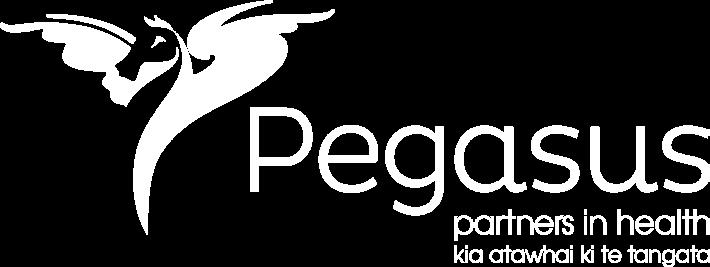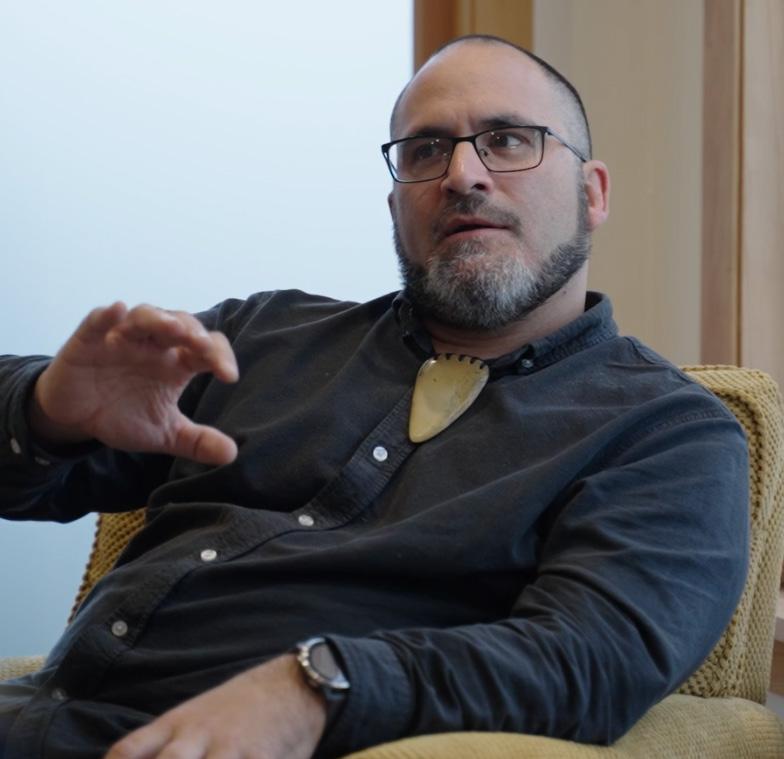














Tēnā koutou,
We are pleased to announce the appointment of Kim Sinclair-Morris to the position of Pegasus Health Chief Executive Officer. Many of you will already know Kim from her leadership of the Canterbury Clinical Network (CCN) over the past decade. Kim’s experience in the health sector, exceptional leadership skills and strong relationship-building capabilities make her the right choice to lead Pegasus to a strong and sustainable future. We look forward to Kim joining us in early August.
In this month’s edition we look at the topic of accessibility. Through the lens of improving accessibility to health care, we look at creating LGBTQIA+-safe spaces, and look back on the impact Te Tumu Waiora has had on our health system.
We also take a look at simple ways to ensure the accessibility of information for those living with a disability. This is a theme we will continue to explore in the coming months.
Ngā mihi nui, ANNA, BEN, IRIHĀPETI, JACKY, MICHAEL, LISA AND SARAH
Pegasus Health Senior Leadership Team

Ka mahuta a Matariki i te pae, ka mahuta ō tātou tūmanako ki te tau
When Matariki rises above the horizon, our aspirations rise to the year ahead
We are excited to introduce our four partner organisations who will support the delivery of the new Pegasus Health Tautoko Hauora service: Christchurch City Mission, Methodist Mission, Tangata Atumotu Trust and He Waka Tapu.
Pegasus has a strong history of partnership with all four of these organisations and we’re very glad to have them all on board.
Tautoko Hauora, translates to “supporting wellness” and is a new navigation service that succeeds the Partnership Community Worker (PCW) service previously managed by Pegasus Health. Under Tautoko Hauora, support workers (kaitautoko) help those who are facing difficulties accessing the health and support services they need.
Tautoko Hauora Service Manager, Maureen van Venrooy, said that the service was built to reflect the needs of the community.
“Kaitautoko work to grow an individual’s capacity to manage their own lives in ways that enhance their wairua and mana,” Maureen said.
The Tautoko Hauora service is available to:
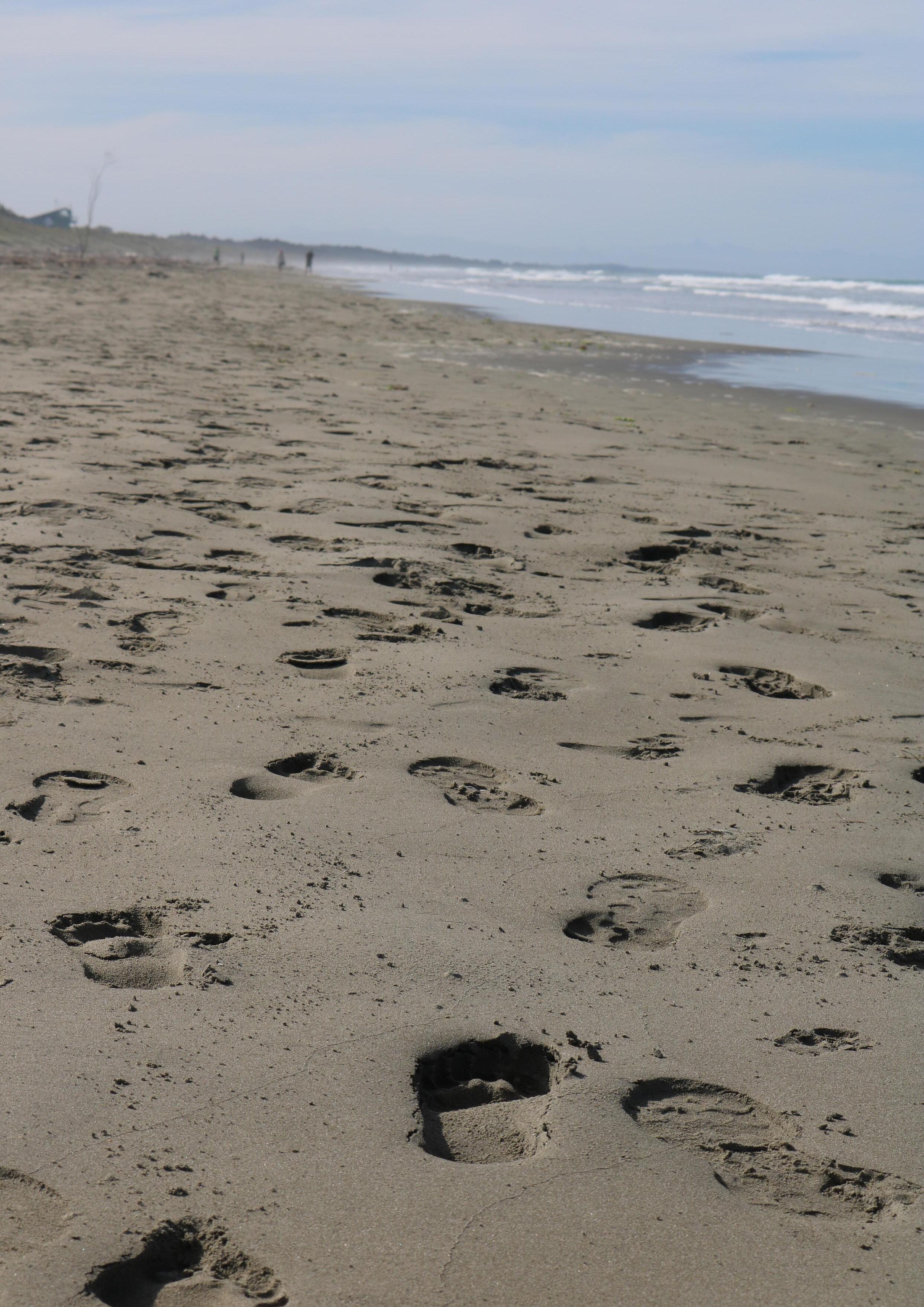
• Māori, Pasifika, CALD, Youth, Rainbow, low income, and those with disabilities (all ages).
• People who are currently enrolled with a Pegasus Practice.
• People who not enrolled and willing to enrol in a Pegasus Practice.
The kaitautoko are a mobile workforce who can carry out home and community visits when appropriate. They can:
• assist patients to gain access to health care and social services.
• assist patients to navigate the primary health system.
• support patients to identify and address needs impacting on their health.
• provide information about supports/resources available in the community.
• connect patients with community support services.
• provide cultural support and link with interpreter services. Referrals can be made through ERMs and more information can be found on the Pegasus Health website: www.pegasus.health. nz/tautoko-hauora
Accessibility is all about inclusion. Accessible information and communications allow disabled people to participate and contribute on an equal basis with non-disabled people.
Pegasus Health recently engaged Paul Barclay from Vision without Limits, a disability and accessibility consultant who has lived experience with a disability. Paul has been engaged to support Pegasus Health in making information and spaces more accessible for all.
Paul has shared some accessibility considerations for developing information and communications. This includes any printed or online information in pamphlets, brochures, websites, online applications, forms, or ways that people access and engage with information and services.

• In New Zealand, we use the term “disabled person/people” as outlined in the New Zealand Disability Strategy rather than “person/people with a disability”.
• Use inclusive language and avoid creating or perpetuating negative social stereotypes. Use “person uses a wheelchair”, rather than being confined to a “wheelchair.” Or someone may “have an impairment”, but they neither “suffer” from it, nor are they “afflicted” with it.
• Other language that is inappropriate includes “mental retardation” and “deaf mute”.
• Information about disabled people should show them as people in society and not create an impression of separateness or specialness. Images should be age appropriate.
• Disabled people should be included in general illustrations to show they are part of the community like everyone else.
• Show disabled people in everyday social situations and work environments.
• Show diversity amongst disabled people – disabled people can be any ethnicity, any relationship or family status etc.
• Some impairments are not visible or obvious. Don’t go out of your way to accentuate a person’s disability in photos/images.
General Practitioner Katey
Yeowart is passionate about working with people who may experience challenges accessing health care. She’s found her home within Travis Medical Centre, a practice that champions LGBTQIA+ advocacy for their patients.
“The data suggests that rainbow and trans- patients experience discrimination in healthcare settings. There’s a fear among the LGBTQIA+ community that they will face that discrimination at their doctor or other health care provider which then reflects on lower attendance rates, and not getting their needs addressed,” Katey said.

Creating an LGBTQIA+ safe environment in general practice doesn’t need to be difficult. At its core, a safe environment is about showing respect, listening and encouraging a dialogue with your patients.
Here are some of Katey’s tips for creating a safe environment for rainbow patients.
“Use the right pronouns and name for your patients. At Travis Medical Centre, we have an alert that shows up when someone’s pronouns are different to what they were assigned at birth. To support this, we make sure we ask all new patients their pronouns and preferred name.”
“We have the Progress Pride Flag in every room. It’s a way of saying ‘we see you – you’re safe’. We also have rainbow posters from All Right and we shared our participation in the recent Sweat with Pride activity.”

“Another thing we do is that our toilets aren’t gendered. Samples and sample containers are given and received in such a way to be discrete for the patient.”
“We have the policies in the background to support the patientfacing approach to creating a gender-safe space. We have a robust policy around recalls to ensure that those patients who need cervical smear or mammography recalls are contacted, even if their gender isn’t female.”
“For people who are worried about experiencing discrimination, it can be as simple as being friendly and openly using the correct name and pronouns. We’re talking about a marginalized group of people who may be marginalized in the workplace or have experienced bullying in school. Be open, encourage a dialogue. Affirming someone’s gender by using the right pronoun can make a real difference in their day.”
For more resources visit: Qtopia, Health Info, or Healthify (previously Health Navigator).
The Te Whatu Ora Waitaha Youth Advisory Council (YAC) has produced a short video to help guide young people through getting the most out of their general practice (GP) appointment.

YAC Chairperson Chelsea Skinner said the group had been approached by Listening to Families which provides free video resources that answer real, everyday questions about health challenges facing our community, particularly our children, young people and their whānau.
“YAC was asked to help create a resource answering the everyday questions about what to expect when going to see a GP, such as costs, how to make an appointment and how to bring up tricky subjects. It’s meant to give young people more knowledge on making the most of their GP appointment, particularly since they are usually only 15 minutes long. Hopefully it’s preparing rangatahi and equipping them with helpful information”, says Chelsea.
You can watch the video here.
Republished with permission from Te Whatu Ora Waitaha | Canterbury Pānui
On the evening of June 28, Pegasus Health Director of Nursing and Allied Health, Michael McIlhone, attended a celebration of 50 years of tertiary education for nurses. New Zealand was one of the first countries in the world to move nurse training from hospitals to tertiary education providers.

“The move to tertiary-based education for nurses meant a deeper level of learning across a wider variety of subjects than was provided in the hospital system,” Michael said.
Michael completed his own nurse education at Christchurch Hospital School of Nursing in the late 70s, and has previously worked as a nurse educator in the Neonatal Service at Christchurch Women’s Hospital from 2000 to 2008. He continues to provide education sessions and inspire post-graduate nursing students through Otago University.
“It was wonderful to celebrate the incredible journey that nurse education has been on,” said Michael. “Dr Jane O’Malley was a fantastic guest speaker and it was great to hear her perspective as one of the first nursing students to go through the tertiary education system.”
The celebration of ‘50 years of nursing education in the tertiary sector’ was held at the Grand Hall, Parliament. The event was hosted by the Council of Deans of Nursing and Midwifery in association with the Nursing Council of New Zealand and Nurse Education in the Tertiary Sector. Guest speakers included Hon Dr Ayesha Verrall, Professor Denise Wilson, Dr Jane O’Malley, RN and Dame Judy Kilpatrick, RN.
Deb Bradshaw, Te Tumu Waiora
Clinical Lead at Pegasus Health, wants practice staff to know that there’s no wrong referral to the Te Tumu Waiora team.
In 2019, Deb was recruited for the pilot of Te Tumu Waiora as a Health Improvement Practitioner (HIP) based out of Piki Te Ora in Linwood. She believes very strongly in the valuesbased approach that HIPs, Health Coaches and Support Workers have.

“We really connect with the values of the person, because if you’re not connecting with what’s valuable to
Canterbury’s general practices find having Te Tumu Waiora roles in their practices overwhelmingly positive and of great benefit to their patients and teams, a recent survey shows.
Te Tumu Waiora is a new way of delivering wellbeing, mental health and addictions support through general practice. Ninety eight percent of respondents agreed that having a Health Improvement Practitioner (HIP) in practice was beneficial to patients and 90 percent agreed Health Coaches were also beneficial.
One respondent commented that: “The HIP is so helpful for patients who are ‘stuck’ or distressed. [Our HIP] is amazing at helping [patients] find a way to become ‘unstuck’ whether it’s because they are depressed or have just lost motivation…. The Health Coach is great at sharing the load as they have time to encourage and give lifestyle advice. It’s fabulous to have someone enthusiastic to help motivate people in this area.”

Similar numbers of respondents also believed the benefits flowed to the practice team too.
the patient then they’re not going to make any changes,” Deb said.
HIPs, Health Coaches and Support Workers operate as a team, helping patients overcome both the psychological and physical barriers to their goals. Deb states that the model the Te Tumu Waiora team works under is designed specifically for general practice and primary care.
“A referral to a HIP or Health Coach should be seen as an extension of the GP consult – an opportunity to delve deeper into concerns that can’t be addressed in a 15 minute GP appointment,” Deb said. “Every patient leaves with a plan that’s designed to move them forward from that moment where they’re stuck with their wellbeing.”
Comments included:
“Our 15-minute consults are so time pressured - it often feels like we are fighting fires. It is good to have a team working on the prevention of the fires and [providing] support when they are out of control.”
“[As a GP, Te Tumu Waiora] takes so much pressure off and allows us to delegate a bit more of the care of our patients. It also feels like a whole team approach and a much more holistic way of caring for our population.”
“It eases that sense of shuffling someone out the door with a half-resolved problem.”
“It feels good to meet a patient’s needs even when feeling busy or overwhelmed.”
“I would no longer have any desire to work somewhere that does not have this fantastic support. I have been a practice nurse for 28 years and this has been the most useful innovative addition to general practice.”
Dr Lizzie Loudon, GP Lead for Te Tumu Waiora Canterbury, said the results provided a clear indication that Te Tumu Waiora provides immense value for both patients and general practice teams.

“Themes from the survey show practice teams appreciate having HIP and Health Coach roles onsite and integrated into the team, so patients could often be seen on the same day,” says Lizzie. “They also demonstrate how Te Tumu Waiora staff can engage with hard-toreach patients and reduce the pressure on GPs and nurses by supporting patients to manage chronic illness and mental health.”
Furthermore, the survey highlighted that Te Tumu Waiora is changing the way clinicians engage with patients, with three quarters of clinicians saying they were more likely to prescribe a lifestyle intervention since having a HIP and Health Coach in practice, while over half said they were more likely to explore mental health issues knowing there was a HIP or Health Coach to help support the patient if needed.
The feedback also identified barriers some practices experience to rolling out Te Tumu Waiora including physical space at the practice, training and orientation, and integration into practice teams which provides useful feedback for the teams.
Approximately 84 people responded from across 20 practices, including general practitioners, practice nurses, practice managers, allied health workers and administrators.
Lizzie presented the findings at the national Integrated Primary Mental Health and Addictions Conference in March – view the presentation
Manu Walker (Te Āti Awa) has just sat her finals to complete a Bachelor of Nursing at Ara | Te Pūkenga. Manu, and a number of her nursing classmates, were recipients of the Pegasus Health Workforce Development scholarship in 2023. The trust and manaaki (respect) that her roopu (cohort) shared was evident in their support for each other on the night.
“We wanted each other to succeed. I see our roopu as whanaunga (relatives). As with all whānau, it will continue to be a pou (pillar) of strength and tautoko (support) for me,” Manu said.
The decision to study nursing was seeded as a child. Science and health were common topics in Manu’s home growing up and her sister has recently graduated with a Bachelor of Midwifery.
“Our kōrero at home was curious, fascinating, and full of challenge. We all had many perspectives to add value to each kōrero. Passion delivered with respect was expected,” Manu said.
Once she has completed her education, Manu hopes to work in primary care where she can work directly with Māori whānau. “I have a strong desire to support Māori communities in overcoming the health disparities they experience and to bridge the gap for access for all whānau,” Manu said.
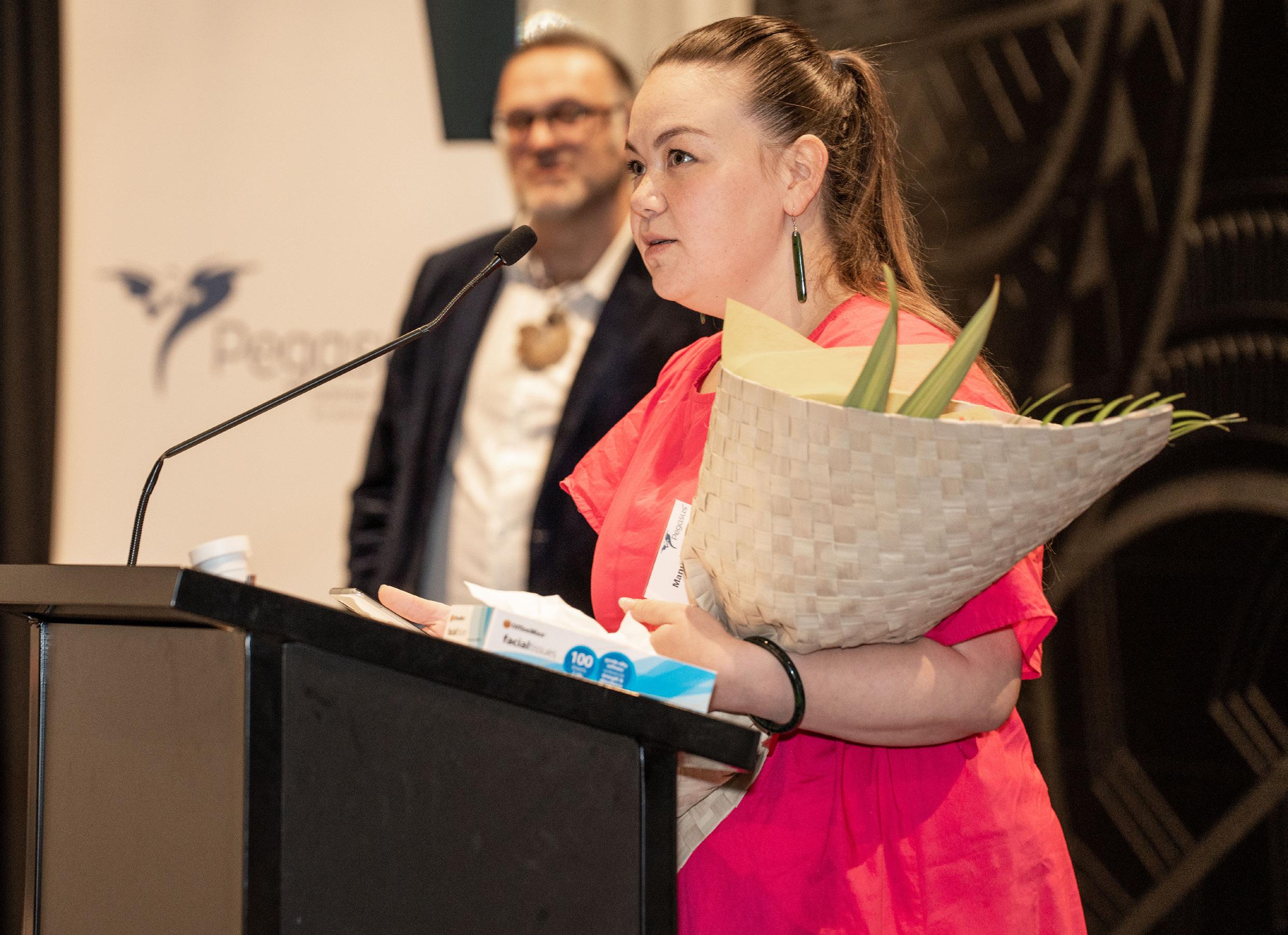
Te Papa Hauora recently held their annual Future Leaders Programme, co-facilitated with Irihāpeti Mahuika, director of Hauora Māori and Equity at Pegasus Health. This year Te Papa Hauora was able to run two week-long full-time programmes at Manawa in the Health Precinct, involving over 40 final-year health students. Students came from a range of disciplines including medical, nursing, speech and language pathology, social work, clinical and organisational psychology, osteopathy, health sciences, physiotherapy, pharmacy, and public health.
The students were encouraged to explore their leadership potential, to question how best to adopt leadership roles, to challenge the status quo and to recognise that leadership is vital at all levels, in all parts of our health system.
The programme involved input from health leaders sharing their experiences, technical aspects of leadership, plus presentations from futurists and business leaders.

The entire course was embedded in the recognition of equity, with particular emphasis on Māori and learnings from a Māori perspective.
The programmes concluded with the students presenting their individual ideas on leadership, diversity and inclusion, and how they were going to ‘nudge the system’. These were all incredibly impressive, honest and insightful.
Feedback from some of the students was that the course was ‘life changing’, ‘if it weren’t for the programme they would not have had the opportunity to connect with and work alongside such a diverse group of amazing individuals’, ‘the content was exceptional, varied and valuable’.
We wish the students all the best finishing their studies, and in their future roles within our health system.
Te Papa Hauora is a strategic partnership between Canterbury’s major tertiary and health institutions; the University of Canterbury, the University of Otago, Ara Institute of Canterbury and the Te Whatu Ora Waitaha, working together with representatives from Ngāi Tahu, a foundation member.
Te Papa Hauora’s purpose is to shape the future of health through facilitating and promoting collaboration in health-related education, research and innovation. Te Papa Hauora commits its activities to improve the health and well-being of the community, pursuing equity of health outcomes and working with and supporting the aspirations of Māori.
For more information about the programme, please contact admin@healthprecinct.org.nz
In response to the high levels of demand facing primary care, Pegasus Health invites you to share ‘This Winter Choose Your Best Healthcare Option’ messaging to help people of Canterbury to become more aware of other healthcare options.
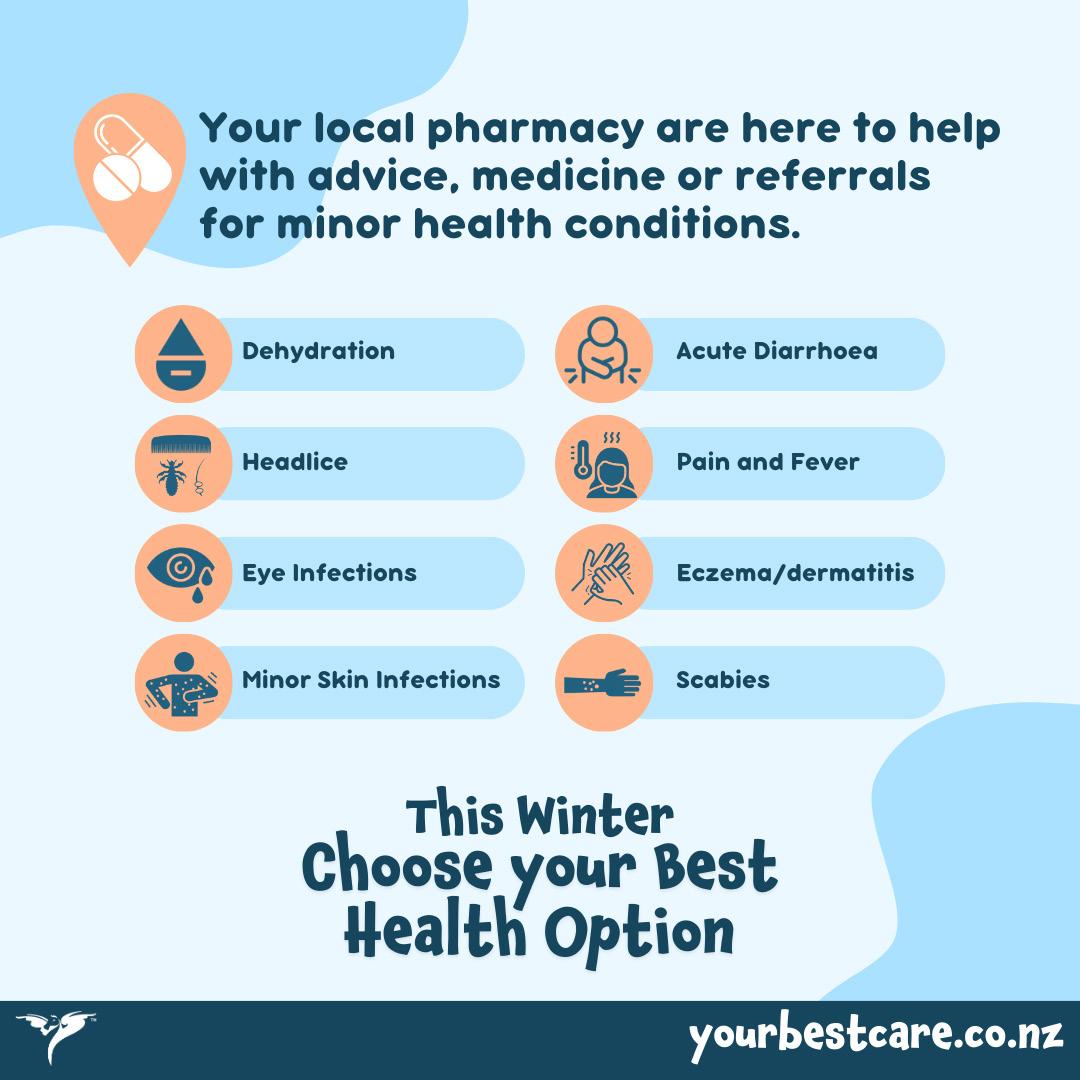


We have recently made some changes to the website to make it more user friendly and provide more comprehensive information and direction for the people of Waitaha Canterbury.
The objectives of this campaign are:
1. Educate the community about the various healthcare options available during the winter season.
2. Encourage the community to make informed decisions regarding their healthcare needs.
3. Reduce the strain on primary health services by promoting the appropriate use of each healthcare option.
We have created a toolkit with resources, please feel free to use these and share with your community! You can find the toolkit here: General Practice Resources - Pegasus Health | Primary Health Services
The National Screening Unit is updating changes to HPV primary screening around priority groups, funding and training to enable more people to access the programme and detect cancer earlier.
The changes to the new HPV cervical screening test and priority group funding will now roll out on Tuesday 12th September 2023 (pushed back from 23 July).
Those who will be eligible for free cervical screening include people with a cervix who are
• unscreened (have never had a screening test)
• under screened (haven’t had a test in the past 5+ years)
• are at higher risk requiring surveillance/follow up
• Māori
• Pacific
• anyone who is a community service card holder.
Please note that Asian will no longer be a funded priority group from 12th September.
Increased funding has been announced to provide free cervical screening services for the key groups above as part of the move to the new HPV test.
Additional one-off funding to increase access to screening for Māori and Pacific has been allocated to Pegasus. Please get in touch if you are interested in working together to provide more flexible initiatives to Māori and Pacific patients, such as offering afterhours or weekend clinics: anna.thorpe@pegasus.health.nz
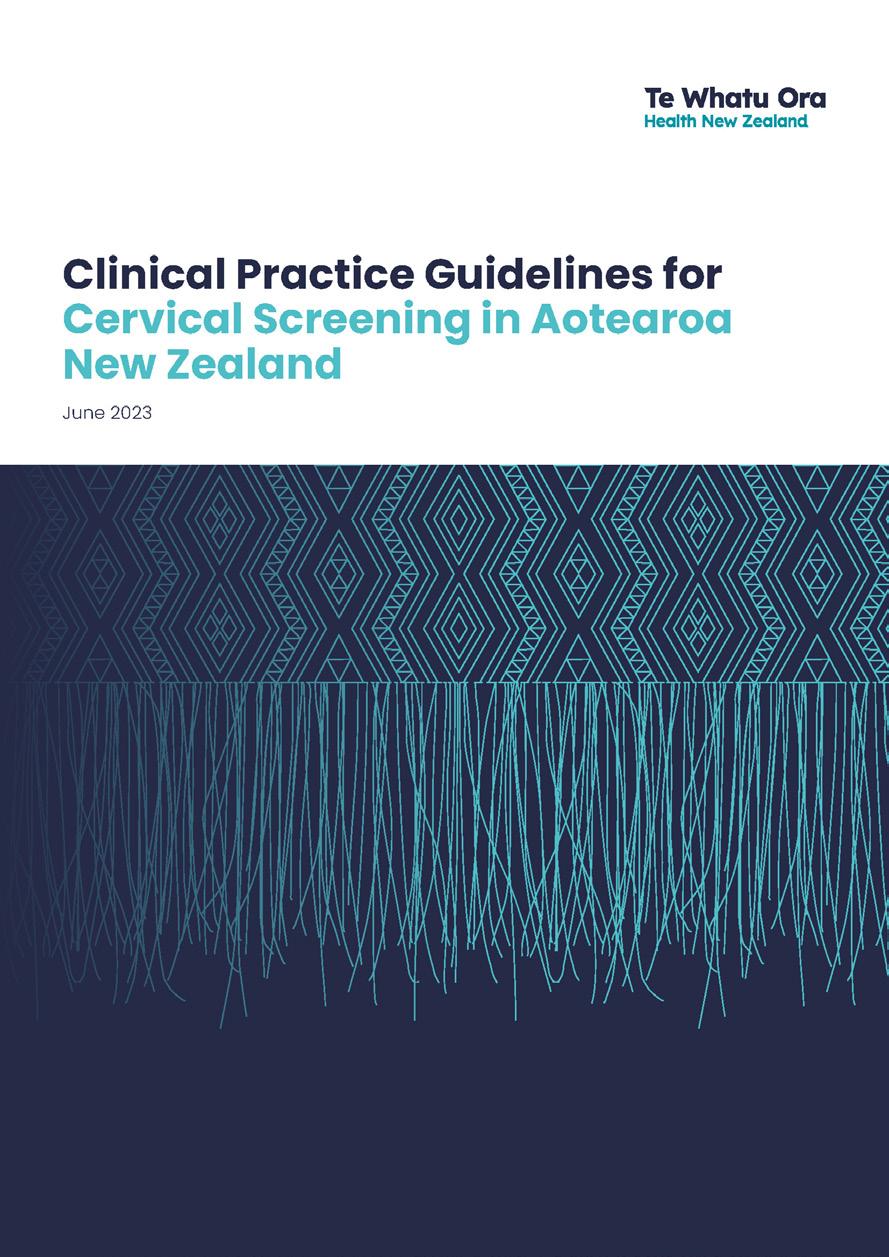
The new HPV test means that people will have three options for having a cervical screening test:
• Choose to collect their own sample, via a simple self-test vaginal swab
• Ask the healthcare provider to collect their vaginal swab sample
• Have the healthcare provider take a cervical sample (If HPV is found, this option also allows for their sample to then be checked for any cell changes).
The delayed launch date will enable more time to prepare for the new screening system, including the new register and information system. The new HPV screening programme rollout timeframes will still be completed by the end of March 2024. For any queries, please contact: HPVScreen@health.govt.nz
See the latest update from the National Screening Unit here.
Pegasus 2025 is produced by the Communications Team at Pegasus Health (Charitable) Ltd. Content within Pegasus 2025 newsletters has been included with the approval of content providers therefore please contact us if you wish to reproduce or alter and transmit any of the information or images contained within. Contact communication@pegasus.org.nz
